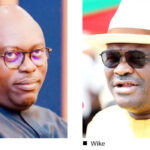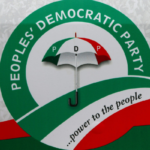Members of Nigeria’s main opposition party, the PDP, have recently been posing a simple question to Nigerians; whether their living conditions are better today than during the 16 years they held sway as the governing party. Their confidence in the simple answer they would more or less unanimously get from the vast majority of Nigerians, which is self-evident, was very much on display at their recently concluded convention which ended on a great show of unity and consensus.
However, beyond the show of unity and considerable achievement of modest consensus in its last convention, Nigerians should raise and reflect on a simple question for the main opposition positioning itself to rule again. What new competence and insight has developed to bring targeted solutions to Nigeria’s rapidly evolving challenges.
Pointing to the failures of the ruling party, which was also the main strategy of the former opposition, the APC, is simply not enough. It is not so much that the challenges of the country have gotten worse under the alleged inept rule of the APC, but it is simply that the challenges have evolved under shifting, and perhaps a more complex situation, a condition that would most likely have overwhelmed the opposition had it remained in office with the same chronic deficiency of original insight to understand the nature of the problem and frame appropriate policy response.
No doubt, achieving unity and modest consensus for a political party, notorious fractious infighting for the most mundane reasons, never connected with disputes about policy or principle is significant but the real test of the new found unity will come when it is time to nominate candidates for elective posts to state institutions.
Nigerians should be asking the main opposition party, PDP, what new competency, efficiency and fresh analytical insight it is bringing along with its revived appetite for governance.
The mere alleged failures of the current ruling party cannot be enough justification for change, because the rhetoric of change was the most alluring slogan of the current ruling APC while in opposition, in addition to the appeal of the straight-talking former general famed for integrity.
The simple fact has remained that none of the two major parties have exercised their imaginations sufficiently and enough to gain proper insight of the Nigeria’s challenges from a profound historical context in which problems mutates to crises, while the simplistic nature of institution’s meant to address them are simply overwhelmed by them. Nigeria’s major political parties and the smaller ones made in their images have largely functioned as vehicles for processing entitlements and privileges and not as platforms for toils, privations and sacrifice, working assiduously to raise the quality of lives for the rest of the society. The senses of entitlements and accessing exclusive privileges have so ravaged the souls of the major parties, that their members openly fight dirty to access government positions as rewards for party membership and party work. The main opposition PDP may have found a common cause among its members in opposition and even a renewed vigour but which of its old habits has it publicly renounced or in what way is it significantly reformed. The party talks glibly about economy in a dire straits, security situation that is incrementally worsening and a political process overheated by exclusion and marginalization but to these problems, which have been brewing and evolving overtime, simple solutions manufactured from passions or even mere compassions, without a deep insight provided by historical contexts and acute interrogations of facts beyond conjectures would lead to a dead end.
Being in the political wilderness for eight years is no justification for a return to power, and sheer unity attained by grudge and quest for vendetta are not enough reasons for Nigerians to happily alternate between their two main traducers and tormentors.
Just as the simple question, the main opposition PDP ask Nigerians today whether their living conditions are better today, Nigerians may have to ask the PDP what new visions it brings along and what old habits has it let go.
It is a shame that the two major political parties have no serious research or think tank to interrogate serious issues and develop preliminary ideas for policy debates and discussions. They are parties that come alive only during elections and go into coma once elections are over. The ruling APC made preparations to governance look like a serious business while in opposition but easily made governance a joke immediately it mounted the saddle. The ruling party says very often that it is laying foundation for sustainable economic growth by emphasising on building infrastructure. They are essentially enablers and without enabling or triggering the complimentary economic activities, infrastructure quickly decays and leads to a dead capital and becomes a burden. Example is the Baro Port in Niger State commissioned in 2017 with fanfare, but which is now rotting away for lack of ancillary facilities to make it useful. The Abuja City Centre railway constructed at a whopping $500m is sitting idle since it was commissioned in 2016. These are infrastructure that have not brought any tangible value.
Nigerians deserve better. Egypt produces 59,000 megawatts of electricity for its less than 100 million population. South Africa produces 54,000 megawatts for its 55 million people, Ethiopia’s grand renaissance dam, started about two years ago would be completed next year and will add 40,000 megawatts to the national grid. Both under PDP and now APC, Nigeria has not produced more than 4,000 megawatts of electricity in the nearly 25 years of their combined rule, and the Mambilla Hydro Power Project conceived since 1972 is still struggling to get started.
The travails of Nigeria as evidence has shown, at least since 1999, is the consequences of the joint incompetence of the two main parties, and so their common misdemeanor should be enough reason if not for the love of country and its people for them to establish a mechanism for inter-party cooperation and dialogue; creating a national big tent through which patriots can work to salvage the country and save its people.
By Charles Onunaiju is a research director with an Abuja-based think tank.

 Join Daily Trust WhatsApp Community For Quick Access To News and Happenings Around You.
Join Daily Trust WhatsApp Community For Quick Access To News and Happenings Around You.


